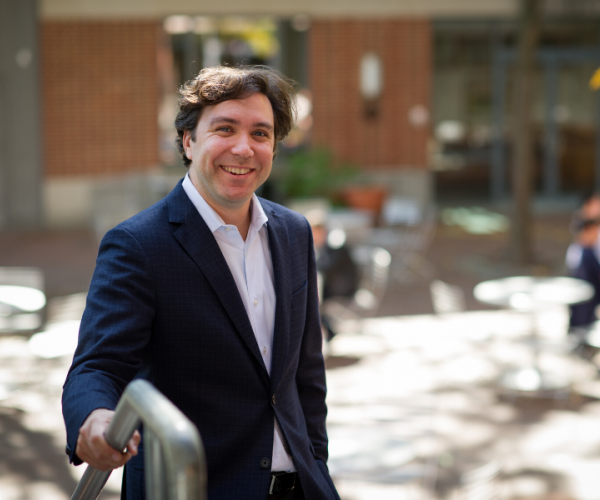Professor Abrams amasses trove of empirical data on COVID-19 and crime
David Abrams, Professor of Law, Business Economics, and Public Policy at the University of Pennsylvania Carey Law School, has amassed a trove of valuable empirical data on the impact of the COVID-19 crisis on crime in the United States at citycrimestats.com.
Debuting his findings via Zoom at a Wharton School Summer Applied Economics Workshop on June 24, Abrams said that the COVID-19 crisis presented nothing less than an opportunity to “test basic theories of crime.”
During this unprecedented situation, he said, “we need data to guide public precaution and policing.”
Examining patterns of crime that emerge from this data could also help us better understand the difference between cities as well as heterogeneity within individual cities, he noted.
Culling data from more than 25 cities through open data portals and email requests, Abrams found that, in general, crime has fallen considerably during the pandemic. Baltimore, Boston, Chicago, Philadelphia, San Francisco, and Washington, D.C., have all seen overall declines of more than 30 percent, while Cincinnati and Seattle saw no significant changes.
Drug crimes, in particular, plummeted, with most cities seeing over 70 percent decreases. There were also substantial declines in residential burglaries, theft, and violent crime, with the exception of homicide, though some of this data almost certainly reflects changes in reporting, Abrams said.
Some crimes, including car thefts and non-residential burglaries, increased, suggesting that criminal activity has been displaced to locations with fewer people.
Abrams said that this data can be used by researchers to determine the impact of changes brought about by the pandemic on crime and by policymakers to determine how policing should change during the pandemic.
We also, he said, have the opportunity to “learn something fundamental about crime from this unique moment.”
To access the website, go to: citycrimestats.com
The Law School’s Quattrone Center for the Fair Administration of Justice recently hosted “Beyond Reform: Reenvisioning the Role of Police” as the initial offering of its summer series, A Path for Change: Policing in America in partnership with the Office of Inclusion & Engagement and the Toll Public Interest Center’s Social Justice Programs.





